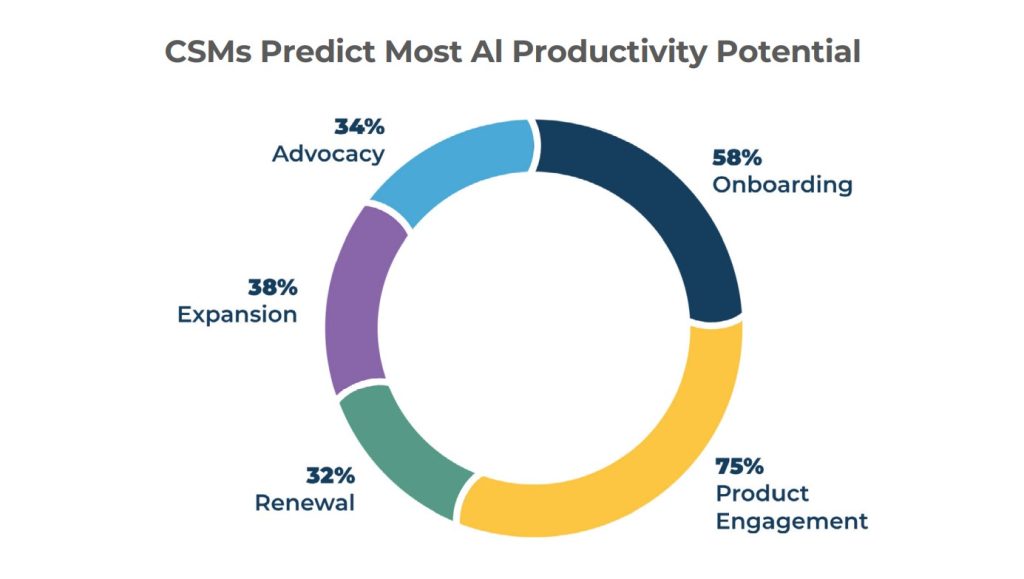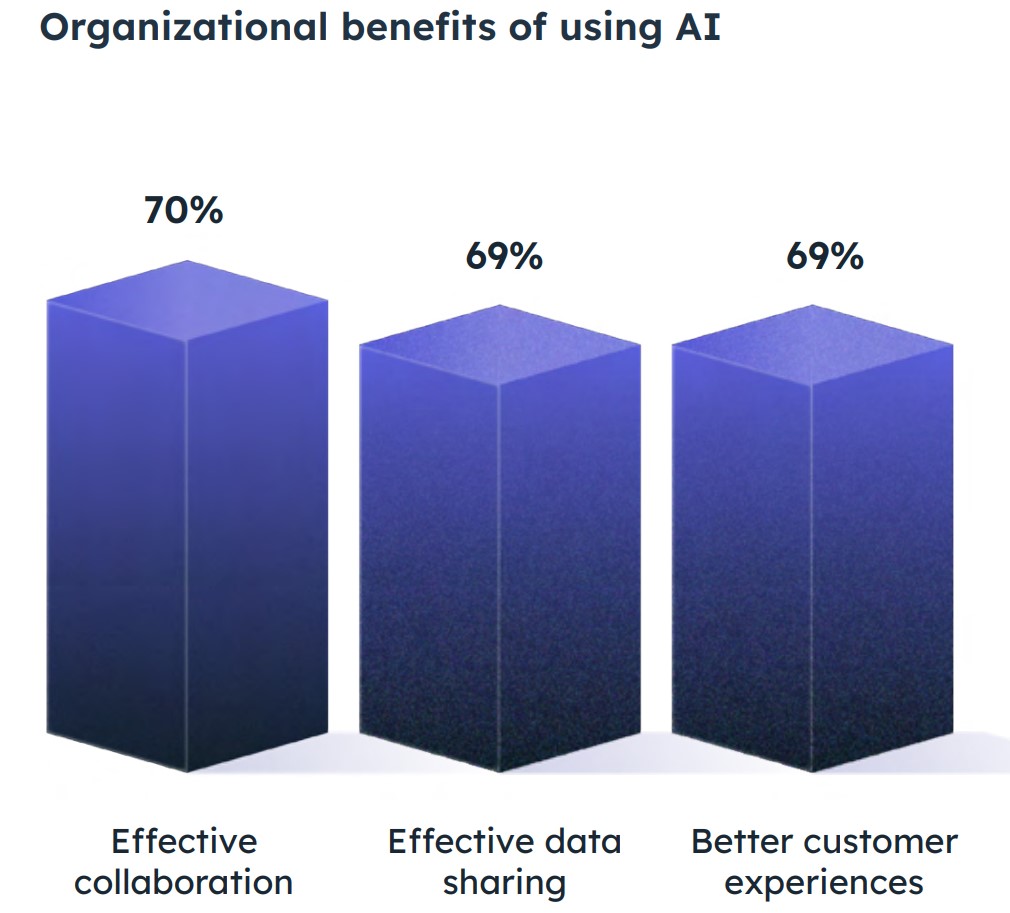Decoding the Future Role of AI in Customer Success
Customer success is increasingly becoming the cornerstone of growth and retention strategies in today’s rapidly evolving business environment.
The future of AI in customer success promises to revolutionize how businesses interact with clients, streamline operations, and empower teams to deliver unprecedented value.
As AI transforms industries, its impact on customer success is undeniable, with tools already shaping strategies and setting new benchmarks for excellence in service.
You must, therefore, adapt to remain competitive, embracing AI-driven approaches that not only optimize processes but also foster deeper customer relationships.
This shift towards AI in customer success isn’t just about staying relevant. It’s also about pioneering new frontiers in customer attraction, engagement, and satisfaction.
In this post, I’ll take you through several ways businesses can embrace the future of AI in customer success.
The Future of AI in Customer Success
AI is rapidly gaining traction in customer success, with 52% of organizations already leveraging this technology. While primarily used for enhancing personal productivity, AI’s potential extends far beyond, promising to revolutionize various aspects of customer success operations.
Here are some promising aspects of the future of AI in customer success.
Driving Customer Engagement
AI-driven tools are reshaping how companies engage with customers. Chatbots, predictive analytics, and automated follow-ups ensure businesses can offer timely, personalized responses to customer needs.
In fact, 75% of organizations report that AI has significantly enhanced customer engagement.

For example, predictive analytics helps businesses anticipate customer needs and preferences, enabling proactive outreach and personalized interactions.
Meanwhile, chatbots and virtual assistants, often integrated into service desk software, provide 24/7 support. They help resolve common issues in real time, addressing queries instantly and freeing up human agents for more complex issues.
These AI-powered solutions can analyze past interactions with your customers, their purchase history, as well as behavioral patterns. This helps tailor communications and product recommendations, creating a more engaging and relevant customer experience.
By empowering teams with AI, companies can improve customer satisfaction and drive long-term loyalty through stronger and more meaningful relationships with clients.
Data-Driven Decision Making and Strategy
AI is transforming how customer success teams make decisions and develop strategies through advanced analytics and automated insights. Here’s how AI is transforming data-driven approaches:
- Customer Health Scoring: AI-driven analytics continuously monitor customer engagement and usage patterns, generating dynamic customer health scores that help predict potential churn risks and identify upsell opportunities.
- Sentiment Analysis: With Natural Language Processing (NLP) algorithms, AI can analyze customer communications across channels, identifying sentiment trends to proactively address dissatisfaction before it escalates.
- Predictive Modeling: AI can leverage historical data to build predictive models that forecast future customer behavior, enabling proactive interventions and personalized support.
- Automated Reporting: AI-powered tools automatically generate detailed reports, saving time while providing actionable insights on customer satisfaction, support needs, and product usage.
- Insights Generation: By processing vast amounts of data, AI uncovers hidden patterns and trends, segmenting customers based on behavior patterns and informing more effective customer success strategies.
By leveraging these AI-driven insights, customer success teams can make faster and more accurate decisions, optimizing both customer interactions and long-term strategy.
Enhancing Onboarding and Training Experiences
AI is revolutionizing customer onboarding and training, creating more efficient and personalized experiences.
By leveraging machine learning algorithms, businesses can develop adaptive onboarding processes like automated task guidance and interactive tutorials. These can cater to individual customer needs and learning styles.
As AI-powered systems analyze user behavior and preferences to tailor individual learning paths, they facilitate faster product adoption and reduce friction points. This ensures customers receive relevant content and guidance at the right time, which not only boosts product understanding but also accelerates time to value.
Automation of repetitive tasks, such as sending follow-up messages or scheduling training sessions, can further simplify the onboarding journey. Companies benefit from these innovations, as 69% of organizations report that AI improves end-to-end customer experiences.

Additionally, AI’s ability to provide real-time feedback and progress tracking allows businesses to adapt their strategies on the fly, ensuring customers are consistently supported. The result is smoother transitions for users, ultimately fostering long-term loyalty.
Embracing the AI-Powered Future of Customer Success
The future role of AI in customer success is undeniably transformative. From personalized onboarding experiences to data-driven decision-making, AI is reshaping how businesses interact with and retain customers.
As we’ve explored, AI enhances engagement, streamlines processes, and provides invaluable insights. Organizations that embrace this technology stand to gain a significant competitive edge.
However, the key lies in thoughtful implementation, balancing AI capabilities with human touch. As the customer success landscape evolves, businesses must proactively integrate AI into their strategies to meet rising customer expectations and drive long-term growth.
The future of customer success is here — and it’s powered by AI.
